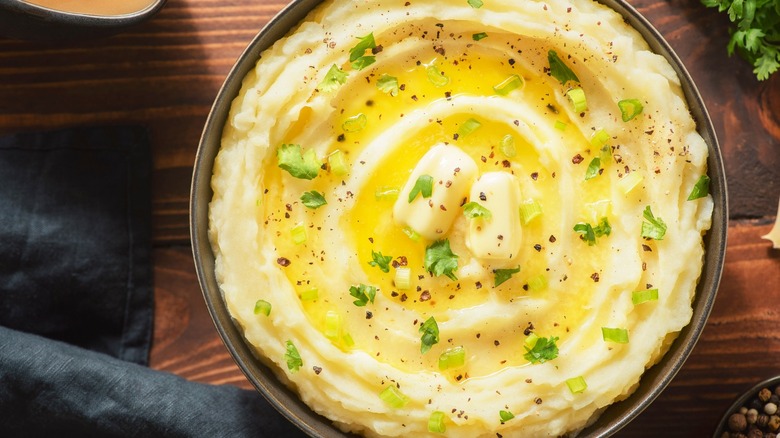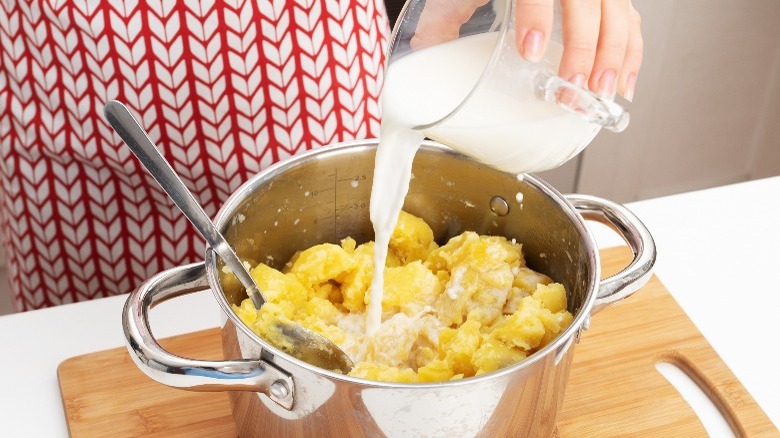Avoid This Common Mistake When Adding Liquid To Mashed Potatoes
Mashed potatoes are such a delight, not just during the holidays but also on weeknights. Although they can be pretty time-consuming to prepare, they're a crowd-pleaser and worth all the effort. Some like their bowl of taters smooth and light, while others prefer a dense and rustic texture with some lumps here and there. Whichever way you go, the key is to stick to a proven recipe that creates a perfect finished serving.
With this special dish comes a short list of ingredients (potatoes, milk, butter, and seasoning) and a reasonably short but critical checklist of dos and don'ts. One of these rules involves how you add the liquid to your potato mash, and it's simple: never add all of it in one go. This is a mistake to avoid at all costs lest you're looking for a runny mess. The spuds need time to absorb the liquids slowly to create an even and creamy mixture.
Don't add all the liquid in one go
The problem with a single huge pour is that if the liquid was too much for your mash, you have no way of removing the excess once it's in there, and you'll end up with a wet mixture that's nothing like the fluffy, creamy dish you were hoping for. Of course, you need the liquid to bring out the creaminess, whether you include milk, half-and-half or sour cream, but just enough of it, or you'll have to eat a side with the consistency of baby food.
The trick is to pour a little at a time and stir, checking the consistency as you go. It can be easy to misjudge how much is adequate when the potatoes are still in lumps. The same is true of any salt or seasoning you like to add in, and stirring and tasting as you go is crucial.
The biggest reason you want to avoid this is, unless you have some instant mashed potatoes or cornstarch to thicken up runny potatoes, you'll be forced to salvage the side by boiling up another batch of spuds to even things out. But this extra work can all be easily avoided by simply exercising moderation when handling the liquid around your potatoes.

